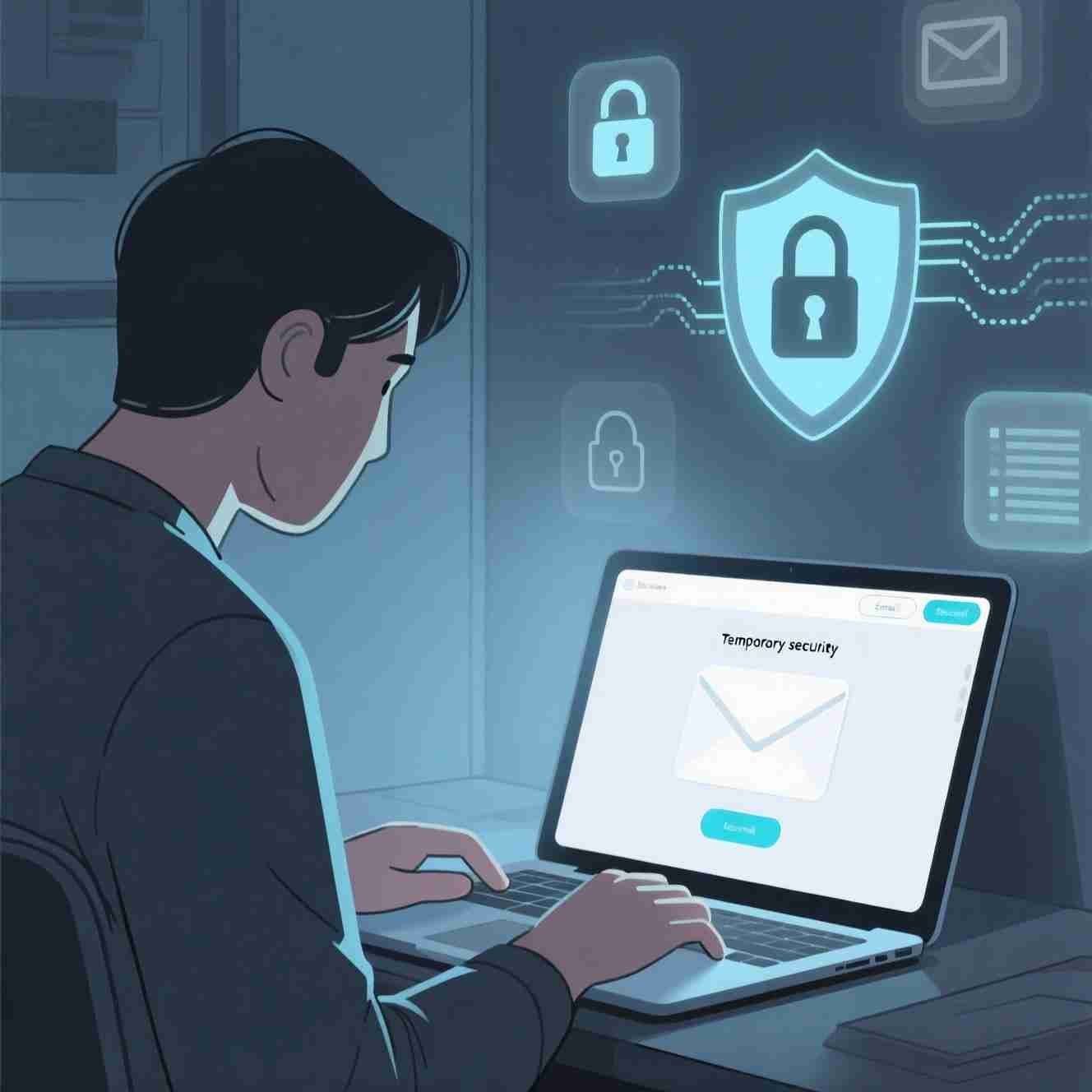

Quick Guide: Creating Temporary Email for Online Privacy
In today's digital age, protecting your online privacy has become more crucial than ever. Every day, we're required to share our email addresses for various services, from signing up for newsletters to accessing free Wi-Fi. However, providing your primary email address can expose you to spam, data harvesting, and potential security risks. This is where temporary email addresses come to the rescue.
What is a Temporary Email?
A temporary email (also known as disposable or burner email) is a short-term email address that you can use for specific purposes and then discard. These emails typically expire after a set period, ranging from minutes to months, and don't require personal information to create. They serve as a buffer between your real identity and online services.
Why Use Temporary Email Addresses?
Enhanced Privacy Protection
Temporary emails prevent companies from linking your online activities to your personal identity, reducing targeted advertising and data profiling.
Spam Prevention
By using disposable addresses, you can avoid flooding your primary inbox with promotional emails and unwanted marketing messages.
Security Benefits
If a temporary email gets compromised or associated services suffer data breaches, your real email address remains safe.
Risk-Free Sign-ups
Test services, access content, or participate in online activities without committing your personal email address.
Multiple Account Management
Create separate temporary emails for different purposes while maintaining clear boundaries between various online activities.
How to Create a Temporary Email
Method 1: Web-Based Services
The easiest way to create a temporary email is through dedicated online services:
-
- Visit a temporary email provider (popular options include Guerrilla Mail, TempMail, Mailinator, and 10MinuteMail)
-
- Generate an address - Most services automatically create one for you, or you can customize it
-
- Set expiration time - Choose how long you want the email to remain active
-
- Start using it immediately - No registration required
Method 2: Mobile Apps
Several mobile applications offer temporary email services:
-
- Download apps like "Temp Mail" or "EmailOnDeck"
-
- Create accounts within the app
-
- Manage multiple temporary addresses from your phone
Method 3: Browser Extensions
Some browser extensions provide temporary email functionality:
-
- Install extensions like "TempMail" for Chrome or Firefox
-
- Generate temporary addresses directly from your browser toolbar
Best Practices for Using Temporary Email
Choose Reputable Providers
Select well-established services with good security practices and positive user reviews. Avoid providers that display excessive ads or have questionable privacy policies.
Understand Expiration Policies
Different services have varying expiration times. Some emails last only 10 minutes, while others remain active for months. Choose based on your specific needs.
Don't Use for Important Accounts
Never use temporary emails for banking, social media, or any service where you might need account recovery. These should always use your permanent email address.
Be Aware of Limitations
Some services may not accept temporary email addresses, particularly those requiring email verification for security purposes.
Check Local Storage
Many temporary email services store messages temporarily in your browser's local storage, so be cautious when using shared or public computers.
Popular Temporary Email Services
Guerrilla Mail
-
- Free and straightforward
-
- Emails expire after 1 hour of inactivity
-
- No registration required
TempMail
-
- Mobile app and web versions available
-
- More stable long-term temporary addresses
-
- Additional security features
10MinuteMail
-
- Exactly what it sounds like
-
- Perfect for quick sign-ups
-
- Simple and reliable
Mailinator
-
- Public inbox system
-
- Good for testing email delivery
-
- Less private than other options
Advanced Privacy Tips
Combine with VPN Services
For maximum privacy, use temporary emails in conjunction with a Virtual Private Network (VPN) to mask your IP address and location.
Use Strong Passwords
Even for temporary accounts, use unique, strong passwords to prevent security vulnerabilities.
Regular Cleanup
Periodically review and delete unused temporary email accounts to maintain better privacy hygiene.
Monitor Your Primary Email
Keep an eye on your main email for any important messages that might have been sent to your temporary address before it expired.
When NOT to Use Temporary Email
Avoid temporary emails for:
-
- Important financial services
-
- Social media accounts you plan to maintain
-
- Services requiring ongoing communication
-
- Professional or business purposes
-
- Any situation where account recovery is essential
The Future of Email Privacy
As online privacy concerns continue to grow, temporary email services are likely to become more sophisticated. We're already seeing features like:
-
- Extended expiration periods
-
- Enhanced security measures
-
- Better integration with other privacy tools
-
- Mobile-first designs
Conclusion
Temporary email addresses are powerful tools in your digital privacy toolkit. They offer a simple yet effective way to protect your personal information while navigating the online world. By understanding how to create and properly use these disposable addresses, you can significantly reduce your digital footprint and maintain better control over your personal data.
Remember, online privacy is not about being paranoid—it's about being smart and proactive about protecting your digital identity. Temporary emails are just one of many tools available to help you achieve this goal. Use them wisely, understand their limitations, and combine them with other privacy practices for the best protection.
Whether you're signing up for a one-time service, testing a new app, or simply want to keep your inbox clean, temporary email addresses provide a convenient and secure solution that puts you back in control of your online privacy.

